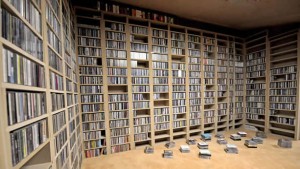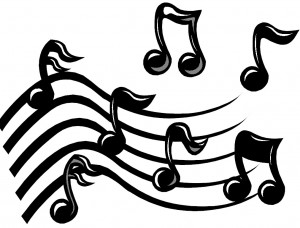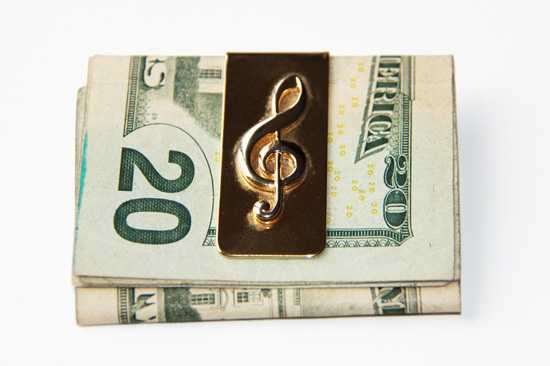This is part two of the blog series “Making money from your music”. In this post we will discuss music libraries. The first blog post in this series spoke about streaming your music over internet radio and how to submit your music to Pandora. That post can be found HERE. Based on some feedback I received from readers, I wrote a follow-up article explaining the benefits of giving away your music for free, which can be found HERE. I recommend reading the first two blog posts if you haven't already.
In this post, I will talk about music libraries, some general songwriting tips specific to music libraries and where to find them and submit your music.
Much of the music you hear on television and commercials comes from music libraries. In the past, television producers would hire composers to write custom music for their commercial, show, corporate video, documentary, or any other media they n eeded music for. The composer or composers would create music for a film and typically offer a solo piano arrangement as a “temp” track to the producer for approval. Once the temp music was approved, they would move on to recording the full score with live players and instruments.
eeded music for. The composer or composers would create music for a film and typically offer a solo piano arrangement as a “temp” track to the producer for approval. Once the temp music was approved, they would move on to recording the full score with live players and instruments.
In the present, budgets are way down in media production and in many cases, the music budget is ….less than ideal. I don't know which was the cause and which was the effect, but the bottom line is, music is really cheap now and it's hard to find productions willing to pay top dollar for your music. They are out there, but you will have a lot of competition. Music is also being produced for a fraction of the cost as years ago. The majority of composers work from their home studios now. We no longer have the big studio production costs of the past. Recording software and computers have been a game changer. There are also high quality sample libraries, many of which you would be hard pressed to know what instrument was a live player and what was recorded using samples. So when we cry at the music budgets for television and media, we also have to take in to consideration that music does not cost as much to produce as in the past.
Despite that being said, many people don't realize how much setting up a professional home studio can cost. We can be talking anywhere from $1,500 dollars to $350,000 dollars! Don't let the word “home” fool you, some of the professional Hollywood composers have some pretty sweet set ups with all the gear you could shake a stick at! …......Ok enough daydreaming about gear.
On to the music libraries. There are a wide variety of music libraries. Some music libraries are high-end and they offer only the highest quality productions, while other music libraries will accept almost any composer and will take medium level productions. Some music libraries will have lots of contacts and will get steady placements in media, while other music libraries will have hundreds of thousands of songs in their library and will rarely get any placements. Some music libraries are royalty free, while others are not.
Each music library will offer its own terms and will most likely take anywhere from 30%-60% of each sale. This is the cost of them being your “publisher”. Many composers and songwri ters have a negative reaction to this initially, after all, why should they get 50% of something I created?? But the obvious answer is, creating a product is only 50% of the work. You still need to market it, develop contacts, work on the licensing deal, sign contracts etc. If you look at most industries, production cost of a product is only a portion of the budget. You always need sales, distribution, employee payroll, benefits and rent at the minimum. As you can see, if you look at your music creations as a business partnership, you produce and they sell, it doesn't seem so bad. I studied under the very talented Brad Hatfield who has more television credits than I can list here. Brad had a saying when talking about music libraries and that was “it's better to make 50% of something than 100% of nothing!”. Once you adopt this phrase internally and realize it is absolutely true, then you can start focusing on your music.
ters have a negative reaction to this initially, after all, why should they get 50% of something I created?? But the obvious answer is, creating a product is only 50% of the work. You still need to market it, develop contacts, work on the licensing deal, sign contracts etc. If you look at most industries, production cost of a product is only a portion of the budget. You always need sales, distribution, employee payroll, benefits and rent at the minimum. As you can see, if you look at your music creations as a business partnership, you produce and they sell, it doesn't seem so bad. I studied under the very talented Brad Hatfield who has more television credits than I can list here. Brad had a saying when talking about music libraries and that was “it's better to make 50% of something than 100% of nothing!”. Once you adopt this phrase internally and realize it is absolutely true, then you can start focusing on your music.
I decided a few years ago that whenever I had free time, I would try to write a song for the music library. I also write music for advertisements, jingles, television, corporate videos with my company M & J Music Creations LLC. Often times I will create 30 or 60 second advertisement spots that are not accepted on the first submission. Instead of throwing those music creations away, I add them to my music library. Doing this for a couple of years, I have had my music bought and licensed all over the world. At this point, I have a collection of songs in the music library and every now and again I will get an email showing me another sale. This is money for 'work' I already did and all but forgot about! To be realistic, I have not paid off my home with the money from the music library yet, but that's also because I don't have a lot of time to create music for it anymore. I have met several people who make a living off of their music library sales. One guy had over 900 pieces of music in his music library! If you treat it like a job and work at it constantly, you will eventually grow your material and start making money. This is assuming you can create good quality productions.
What kind of music are they looking for?
This is easy to answer – EVERYTHING! Sometimes a TV music supervisor will search out a music library to find source music, which may be playing from a car radio or jukebox during a scene. This is music that will be in the background of the scene and may be EQ'd to sound like it is coming out of a radio, as an example. If the producers of the show want to use a popular song, they will have to pay big dollars to license it. So buying or licensing an unknown song from a music library is a more favorable choice in many cases. They might scan through and find a song that fit with whatever genre or style the scene is portraying, then license it for the scene. It might be a scene that needs house or techno music, or a soap advertisement that is looking for soft sensual music.
General guides and ideas for music library composing
Advertisements - typically run :15 seconds, :30 seconds and :60 seconds. If you create music for these exact lengths, it has a better chance of being used due to the convenience factor. Remember, your reverb, delays and sustains have to end by the allotted time as well.
Song length – A song length from 1:30 to 3:00 minutes is good ballpark. Rarely you will get your song into a scene or production and have it play more than 3 minutes.
Sound-a-likes – Most music libraries will post what kind of music they are looking for, based on supply and demand. You will find that they are always looking for “sound-a-likes”. Sound-a-likes are songs that sound like they are in a certain genre, or a certain band or a certain era. If you are going to create “sound-a-like” songs, just be mindful not to outright copy or steal material, or you could find yourself on a hot seat.
Song structure – I would suggest going with a typical ABA format or something easy to follow. Always add a short intro and an ending. This gives the music editor many options when splicing and editing the song. “Nooo they can't cut up my song!!”...Yes, yes they can and they will :(
Other considerations – Very few songs are going to be the 'featured' song in the film. Sometimes they are, but consider all the music in a film or radio and you will realize that most of the music is in the background, under dialog. This means that they do not want the music to distract the audience, they want the music to enhance the mood. With this in mind, there are some general understandings when writing music under dialog:
Have a steady rhythm. If you are changing time or doing double stops, it is going to call attention to our ears. We tend to accept the constant and be alerted to change.
No crazy solo's. If you want to make a song and call it “Steve's sexy-ass-sax solo” or Brett's bitchin' guitar riffs” then by all means do it and solo your hearts out, just make sure it's named appropriately so when the producers are looking for a sexy-ass-sax solo, they find it. Otherwise, a blazing, distracting solo in the middle of a scene is not going to work and will be cut.
Choosing a music library
Some libraries are exclusive, meaning that you cannot sell the same song anywhere else except for their library. Other libraries you can sell as many places as you want. Make sure you do your research on this and decide.
As mentioned previously, some libraries have a lot of placements, and other just have a lot of songs. Most libraries will have a “recent placements” list or something similar which will give you some insight in to the kind of money they generate.
Check to make sure you agree to their terms and publishers share. Never give up the master rights to your music! However, don't be too shocked when they want 50% either.
The easiest way to get started is to find a royalty free library, make a profile and start uploading songs. They will all have a moderator who has to approve the music prior to going live, so make sure your music and production are up to par. When you upload songs to any library, make sure to take the time and complete all of the information on the songs, this will allow the most opportunity for your songs to be found on a search.
I recommend when you create a song, to write in the comments field, the genre, instruments, length, BPM and lyrics. If possible, also make different mixes, instrumental, lyrics 6 DB lower, and normal. Also different lengths: full version, :30 second and :60 second versions. If possible make a :15 second stinger.
If you feel so inclined, I would challenge you to commit to writing a song and submitting it to a music library. Even if it's not the best song you have ever written, The benefits you gain from forcing yourself to write, mix and produce continue to grow the more you do it.
If you subscribe to our email list (upper right corner of the screen), you will receive a FREE music library report with a list of music libraries and a direct link to them, which should aid you in your music library search. Thank you for being a reader and stay tuned for more in the series, “Making money from your music”!
Mike Lizotte
